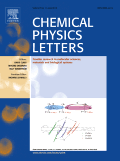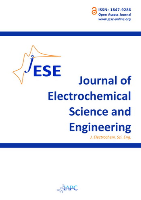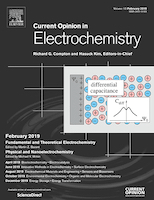
Chemosensors
metrics 2024
Transforming Ideas into Innovative Sensor Solutions
Introduction
Chemosensors is a distinguished open-access journal published by MDPI, focusing on the innovative field of analytical chemistry and physical and theoretical chemistry. Since its inception in 2013, the journal has rapidly established itself as a pivotal platform for the dissemination of cutting-edge research related to the development and application of chemical sensors, encompassing various methodologies and technologies that contribute to advancements in diagnostics, environmental monitoring, and industrial applications. Based in Switzerland, the journal operates with a commitment to accessibility, ensuring that all published articles are freely available to a global readership. With a current impact factor that positions it in the Q2 quartile for both Analytical Chemistry and Physical and Theoretical Chemistry, Chemosensors attracts a diverse audience of researchers, professionals, and students eager to explore new findings and foster collaborative efforts in sensor technology and its applications. As it continues to grow, Chemosensors remains devoted to advancing scientific knowledge and innovation in its field, making significant contributions to the global scientific community through its rigorous peer-review process.
Metrics 2024
 -
- 3.70
3.70 3.70
3.70 -
-Metrics History
Rank 2024
IF (Web Of Science)
JCI (Web Of Science)
Quartile History
Similar Journals

Sensors and Actuators Reports
Advancing the Frontiers of Sensor and Actuator TechnologySensors and Actuators Reports, published by Elsevier, is a premier open access journal that has been contributing to the fields of physics, computer science, and engineering since its establishment in 2019. With its ISSN 2666-0539, this journal has rapidly gained recognition, achieving Q1 quartile rankings across multiple categories, including Atomic and Molecular Physics, Computer Science, and Electrical Engineering. By providing a platform for high-quality research and innovative findings, Sensors and Actuators Reports is dedicated to advancing knowledge in sensor and actuator technologies, which are pivotal for numerous applications in modern science and industry. The journal's performance is underscored by its impressive Scopus rankings, placing it in the top tiers across various disciplines. Open access ensures that research is widely disseminated, fostering collaboration and enabling researchers, professionals, and students alike to engage with the latest advancements in their fields.

Acta Photonica Sinica
Advancing Knowledge in Atomic and Molecular PhysicsActa Photonica Sinica is a peer-reviewed academic journal published by SCIENCE PRESS, focusing on the fields of atomic and molecular physics and optics. Since its inception in 1997, this journal has provided a crucial platform for researchers and professionals to share cutting-edge findings and advancements in photonics and related areas. Despite its current positioning in the Q4 quartile for both atomic and molecular physics and optics, Acta Photonica Sinica remains a significant contributor to the scholarly community, fostering innovative discussions and collaborations. The journal does not currently offer open access, providing a selective but impactful repository of knowledge for readers in China and beyond. As the scientific landscape evolves, the journal aims to enhance its scope and impact, addressing the challenges and opportunities within the photonics domain. Researchers, students, and professionals interested in the latest theoretical and experimental studies will find a wealth of information that emphasizes the pivotal role of optics in scientific and technological advancements.

CHEMICAL PHYSICS LETTERS
Connecting Researchers to the Pulse of Chemical PhysicsCHEMICAL PHYSICS LETTERS, published by Elsevier, is a prestigious journal that has been at the forefront of advancing knowledge in the fields of physical and theoretical chemistry and physics since its inception in 1967. With an impressive impact factor reflective of its high-quality research output, this journal holds Q2 quartile rankings in both the Physical and Theoretical Chemistry and Physics and Astronomy categories for 2023. It is recognized as a key platform for disseminating groundbreaking findings, with Scopus rankings placing it within the top 76th and 66th percentiles in its respective categories. Researchers and professionals benefit from its insightful contributions and rigorous peer-review process, making it an essential resource for those engaged in cutting-edge chemical physics studies. Although the journal is not open access, it remains accessible through various institutional subscriptions, ensuring that a wide audience can explore its wealth of knowledge. Located in Amsterdam, Netherlands, the journal continues to drive innovation and collaboration across diverse scientific disciplines.

MONATSHEFTE FUR CHEMIE
Unveiling Insights from Over a Century of Chemical ResearchMONATSHEFTE FUR CHEMIE, an esteemed journal published by Springer Wien, has been a significant contributor to the field of chemistry since its inception in the late 19th century. With a rich history spanning from 1880 to the present, this journal provides a platform for innovative research and comprehensive reviews in various areas of general chemistry. Although it currently holds a Q3 ranking in the miscellaneous category of chemistry, its commitment to maintaining high academic standards is reflected in its continued relevance and citation impact, as evidenced by its Scopus ranking. Researchers, professionals, and students engaged in chemical sciences will find this journal a valuable resource for advancing their knowledge and contributing to ongoing discussions in the field. For those looking to stay updated on the latest developments in chemistry while engaging with a storied publication, MONATSHEFTE FUR CHEMIE is a pivotal source of insightful content.

Analytical & Bioanalytical Electrochemistry
Bridging Disciplines Through Electrochemical InnovationAnalytical & Bioanalytical Electrochemistry is a pivotal journal dedicated to the advancement of research and innovation in the fields of analytical chemistry and electrochemistry. Published by the University of Tehran, Faculty of Chemistry, Center of Excellence in Electrochemistry, this journal has been contributing to the scientific community since its inception in 2009 and continues to be a critical platform through 2024. With an ISSN of 2008-4226, it focuses on a variety of topics including electrochemical sensors, bioanalytical techniques, and innovative methodologies in electrochemical analysis. Although it currently holds a Q4 quartile ranking in both analytical chemistry and electrochemistry categories, its unique insights and research findings are essential for advancing knowledge and fostering interdisciplinary collaboration within the scientific community. Researchers, professionals, and students engaged in these dynamic fields will find valuable resources and contribute to the ongoing discourse by publishing their work in this journal. We invite you to explore and engage with the diverse content that Analytical & Bioanalytical Electrochemistry offers to enhance your research and professional development.

SENSORS is a leading peer-reviewed open-access journal published by MDPI, dedicated to the field of sensor technology and its applications. Established in 2001 and located in Basel, Switzerland, this journal plays a pivotal role in disseminating groundbreaking research encompassing various disciplines, including Analytical Chemistry, Physics, Engineering, and Biochemistry. With a distinguished 2023 Scopus ranking that places it in Q1 across multiple categories and a commendable impact factor reflective of its high-quality contributions, SENSORS has cemented its status as an essential resource for researchers and professionals alike. The journal is committed to facilitating knowledge exchange in cutting-edge sensor technologies, fostering advancement in areas such as instrumentation, medical applications, and electronic engineering. The convenient open-access model ensures that research findings are readily accessible to a global audience, promoting collaboration and innovation within the scientific community. For all those interested in probing the depths of this dynamic field, SENSORS provides a rich repository of research that not only informs but inspires future explorations.

ANALYTICAL AND BIOANALYTICAL CHEMISTRY
Unveiling the Complexities of Chemical AnalysisANALYTICAL AND BIOANALYTICAL CHEMISTRY, published by SPRINGER HEIDELBERG, is a leading international journal that serves as a vital platform for innovative research in the fields of analytical and bioanalytical chemistry. With an impressive impact factor and ranking in the Q2 category for both Analytical Chemistry and Biochemistry, the journal highlights key advancements and methodologies that drive the discipline forward. Established in 1996 and continuing vigorously into 2024, it has gained significant recognition with Scopus rankings placing it in the 83rd and 78th percentiles within its categories, underscoring its impact and relevance. The journal's commitment to open access facilitates widespread dissemination of critical scientific knowledge, making it an essential resource for researchers, professionals, and students dedicated to exploring the complexities of chemical analysis. With its base in Heidelberg, Germany, ANALYTICAL AND BIOANALYTICAL CHEMISTRY continues to inspire and influence the global research community.

Journal of Electrochemical Science and Engineering
Advancing the Frontiers of Electrochemical Research.The Journal of Electrochemical Science and Engineering, published by the International Association of Physical Chemists (IAPC), serves as a vital resource for researchers and professionals in the fields of electrochemistry, materials chemistry, and chemical engineering. With an Open Access model since 2011, this journal ensures that groundbreaking research is freely accessible to a global audience, promoting collaboration and knowledge sharing. Situated in Croatia, it showcases cutting-edge developments while focusing on applied aspects related to electrochemical technologies. Notably, the journal holds a commendable Scopus ranking, placing it within the Q3 quartile for multiple categories, including Chemical Engineering (miscellaneous) and Electrochemistry. By fostering innovative research and comprehensive reviews, the Journal of Electrochemical Science and Engineering plays a crucial role in advancing the understanding and application of electrochemical processes, making it an indispensable platform for academics and practitioners alike.

Current Opinion in Electrochemistry
Shaping the Future of Electrochemical ResearchCurrent Opinion in Electrochemistry, published by Elsevier, stands at the forefront of research in the fields of Analytical Chemistry and Electrochemistry. With an impressive Impact Factor reflected in its Q1 quartile rankings for both categories, this journal holds a significant place among its peers, ranking 9th in Analytical Chemistry and 8th in Electrochemistry according to Scopus metrics. Launched in 2017, it has rapidly become a vital platform for the dissemination of cutting-edge insights, reviews, and critical assessments that shape the future directions of electrochemical research and applications. As researchers, professionals, and students engage with its content, they find not only a repository of knowledge but also a source of inspiration for innovative experiments and applications. Readers can explore the wealth of information this journal provides to stay updated with contemporary trends and emerging technologies in electrochemistry. With a commitment to high-quality scholarly content, Current Opinion in Electrochemistry is your essential guide to the evolving landscape of electrochemical science.

MICROCHEMICAL JOURNAL
Exploring the Depths of Microchemical TechniquesMicrochemical Journal, published by Elsevier, stands as a leading scholarly publication in the fields of Analytical Chemistry and Spectroscopy, boasting impressive rankings of Q1 and Q2 in their respective categories for 2023. With an H-index reflecting its substantial impact and relevance, this journal has been a cornerstone of research dissemination since its inception in 1957, and it continues to play a vital role in advancing the methodological and technological innovations within these disciplines. The journal presents peer-reviewed articles that explore a wide array of topics, making it an essential resource for researchers, professionals, and students keen on the latest advancements in microchemical processes and techniques. Although it does not currently offer open access options, its publication through Elsevier ensures a high standard of academic integrity and wide accessibility through various academic institutions. With a strong Scopus ranking—9th in Chemistry Spectroscopy and 22nd in Analytical Chemistry—Microchemical Journal is an indispensable platform for empirical studies, insightful reviews, and pioneering methodologies in the microchemical domain.